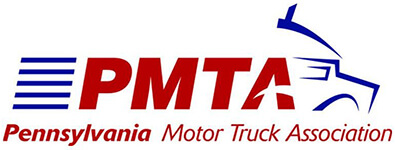PA Adopts Automated Vehicle Guidelines While Federal Legal Battle Looms Over Driverless Trucking Regulations
On October 23, 2024, the Pennsylvania Department of Transportation (PennDOT) took a significant step forward in advancing autonomous vehicle operations by adopting new guidelines that allow certified driverless vehicles to operate on state roadways without a safety driver. At the same time, a high-profile legal battle highlights the evolving challenges in regulating autonomous trucking technologies.
Pennsylvania’s New Guidelines for Driverless Vehicles
PennDOT recently updated its Publication 950 to enable certified highly automated vehicles (HAVs) to operate on Pennsylvania roads without a driver in the vehicle. These guidelines also establish conditions for remote operation of autonomous vehicles, making Pennsylvania one of the few states to permit fully driverless operations.
“These guidelines position Pennsylvania as a national leader in driverless vehicle operations,” said PennDOT Secretary Mike Carroll. “We are committed to ensuring public safety while fostering innovation in the autonomous vehicle space.”
The guidelines were developed with input from the HAV industry and the Highly Automated Vehicle Advisory Committee, which includes experts from government, industry, and nonprofits. They were also shaped by public feedback and align with Act 130 of 2022, which designates PennDOT as the sole regulatory authority for HAVs in the state.
More information on automated vehicles, operations and testing, regulations and initiatives can be found on the PennDOT website.
Driverless Trucking Legal Dispute: Aurora Challenges FMCSA
While Pennsylvania advances autonomous vehicle operations, a legal dispute is unfolding at the federal level over regulations affecting driverless trucks. Aurora, a leading autonomous trucking company, has filed a lawsuit against the Federal Motor Carrier Safety Administration (FMCSA) after the agency denied an exemption request for alternative warning devices on autonomous trucks.
Aurora and Waymo had petitioned the FMCSA to allow the use of Cab-Mounted Warning Beacons (CMWBs) instead of the federally mandated reflective triangles or flares. The companies argued that traditional warning devices are impractical for autonomous commercial motor vehicles (CMVs) without human drivers.
The FMCSA rejected the petition on December 26, 2024, citing insufficient evidence that CMWBs provide an equivalent level of safety. In response, Aurora filed a lawsuit on January 10, 2025, claiming the FMCSA’s decision is “arbitrary and capricious.” Aurora pointed to studies suggesting that CMWBs are as effective as traditional warning devices and emphasized the risks to human drivers who must place reflective triangles on active roadways.
The legal battle comes as Aurora prepares to launch its driverless trucking service in Texas in April 2025. The case underscores the tension between advancing technology and regulatory frameworks designed decades ago.
